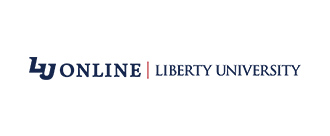Want a career that would require you to combine your counseling skills with your Christian beliefs? One option is Liberty University's Bachelor of Science in Religion with a cognate in Christian Counseling program. Read more information about this bachelor's degree program here.
<h2 id="section---FrequentlyAskedQuestions">Frequently Asked Questions</h2>
<h3 id="section---WhatKindOfProgramIsIt">What Kind of Program Is It?</h3>
<p>You will have the opportunity to study various counseling and ministry methods and concepts once you have enrolled in Liberty University's Bachelor of Science in Religion with a cognate in Christian Counseling program. This program is offered in an online format. In the area of the cognate, you could learn about biblical counseling techniques you could apply to help people cope with behavioral, spiritual, and crisis situations. Courses are designed to help you build the skills needed to work with individuals, couples, and families. The core and general education curriculum offer study in theology, philosophy, religious teaching, church ministry, evangelism, and biblical studies.
</p>
<h3 id="section---WhatAreThePrerequisites">What Are the Prerequisites?</h3>
<p>To apply to Liberty University's Bachelor of Science in Religion with a cognate in Christian Counseling program, you must have already earned your high school diploma or GED. A strong Christian faith and an academic background in psychology are helpful.
</p>
<h3 id="section---WhatAreTheCourseRequirements">What Are the Course Requirements?</h3>
<p>You will be required to complete 120 credits to earn Liberty University's Bachelor of Science in Religion with a cognate in Christian Counseling. The program's curriculum includes 48 credits in general education coursework, 27 credits of electives, 27 credits in core courses, 15 credits in the area of the cognate, and a three-credit graduation requirement.
</p>
<p><u>Bachelor of Science in Religion with a cognate in Christian Counseling Course Requirements</u>
</p>
<p />
<table border="1"><tr><th>Course Number</th><th>Course Title</th></tr>
<tr><td><b>Foundational Studies</b></td><td /></tr>
<tr><td>ENGL 101</td><td> Composition and Rhetoric</td></tr>
<tr><td>ENGL 102</td><td> Composition and Literature</td></tr>
<tr><td>Communications Elective</td><td> Select One</td></tr>
<tr><td>Math Elective</td><td> MATH 115 or higher</td></tr>
<tr><td>EVAN 101</td><td> Evangelism and Christian Life</td></tr>
<tr><td>INFT 101</td><td> Instructional Tech. for Online Learning</td></tr>
<tr><td><b>Investigative Studies</b></td><td /></tr>
<tr><td>Natural Science Elective</td><td> Select One</td></tr>
<tr><td>History Elective</td><td> Select One</td></tr>
<tr><td>Social Science Elective</td><td> Select One</td></tr>
<tr><td>General Education Elective</td><td> Select One</td></tr>
<tr><td>Humanities Elective</td><td> Select One</td></tr>
<tr><td>PHIL 201</td><td> Philosophy and Contemporary Ideas</td></tr>
<tr><td>BIBL 105</td><td> Old Testament Survey</td></tr>
<tr><td>BIBL 110</td><td> New Testament Survey</td></tr>
<tr><td>THEO 201</td><td> Theology Survey I</td></tr>
<tr><td>THEO 202</td><td> Theology Survey II</td></tr>
</table><p><u>Major Core Courses</u>
</p>
<p />
<table border="1"><tr><th>Course Number</th><th>Course Title</th></tr>
<tr><td>CHMN 201</td><td> Introduction to Church Ministries</td></tr>
<tr><td>GLST 200</td><td> Introduction to Global Studies</td></tr>
<tr><td>BIBL 350</td><td> Inductive Bible Study</td></tr>
<tr><td>BIBL 364</td><td> Acts</td></tr>
<tr><td>BIBL 425</td><td> Romans</td></tr>
<tr><td>CHHI 301</td><td> History of the Christian Church I</td></tr>
<tr><td>CHMN 387</td><td> Methods of Teaching Bible and Religion</td></tr>
<tr><td>THEO 350</td><td> Fundamental Theological Issues</td></tr>
<tr><td>RLGN 489</td><td> Capstone Seminar</td></tr>
</table><p><u>Christian Counseling Cognate Courses</u>
</p>
<p />
<table border="1"><tr><th>Course Number</th><th>Course Title</th></tr>
<tr><td>CCOU 201</td><td> Introduction to Christian Counseling</td></tr>
<tr><td>CCOU 202</td><td> Issues of Christian Counseling</td></tr>
<tr><td>Select three of the following courses:</td><td /></tr>
<tr><td>CCOU 301</td><td> Christian Counseling for Marriage and Family</td></tr>
<tr><td>CCOU 302</td><td> Christian Counseling for Children</td></tr>
<tr><td>CCOU 304</td><td> Christian Counseling for Women</td></tr>
<tr><td>CCOU 305</td><td> Healthy Sexuality</td></tr>
</table><p><u>Graduation Requirement</u>
</p>
<p />
<table border="1"><tr><th>Course Number</th><th>Course Title</th></tr>
<tr><td>CRST 290</td><td> History of Life</td></tr>
</table><h3 id="section---WhatCouldIDoAfterIGraduate">What Could I Do After I Graduate?</h3>
<h4 id="section---CareerOpportunities">Career Opportunities</h4>
<p>Liberty University's Bachelor of Science in Religion with a cognate in Christian Counseling program is designed to prepare you to pursue counseling positions in a variety of professional settings. You might seek opportunities in churches, community centers, detention centers, schools, or family crisis centers.
</p>
<p>Possible positions include:
</p>
<ul><li>Chaplain
</li><li>Counselor Aide
</li><li>Spiritual or Pastoral Counselor
</li></ul><h4 id="section---AdvancedDegrees">Advanced Degrees</h4>
<p>You will be prepared to enter a master's degree program after you have earned the Bachelor of Science in Religion with a cognate in Christian Counseling. Some counseling positions might require a graduate degree. A master's degree could also be necessary for advancement to directorial or executive positions in this field.
</p>
<p>Degrees include, but are not limited to:
</p>
<ul><li>Master of Arts in Religion
</li><li>Master of Science in Counseling
</li><li>Master of Arts in Christian Counseling</li></ul>


.svg)


